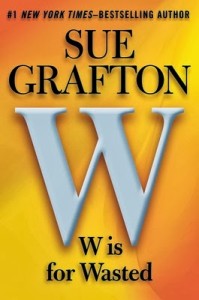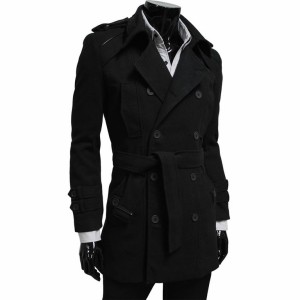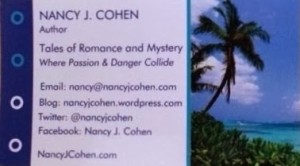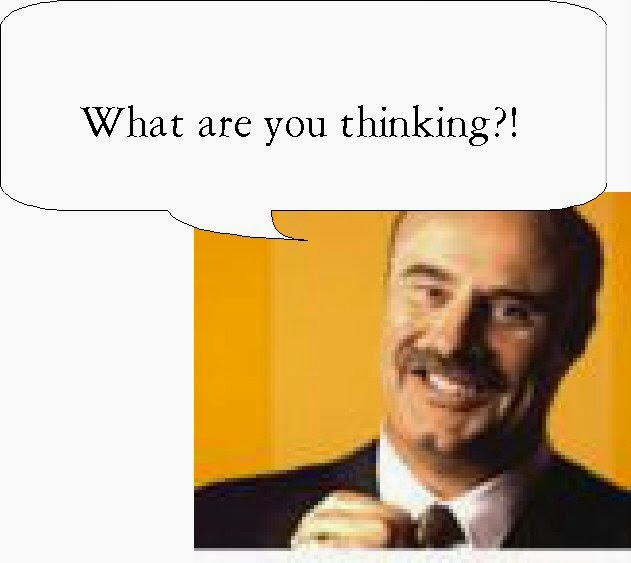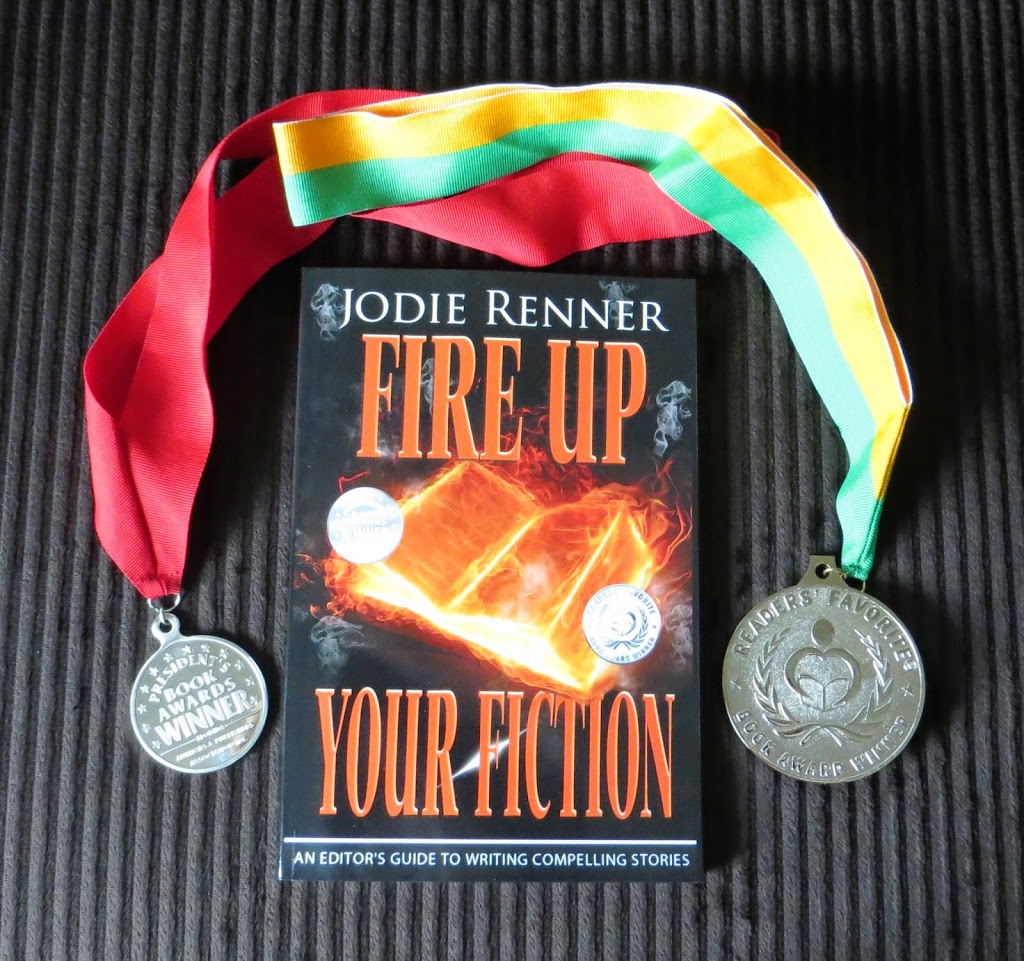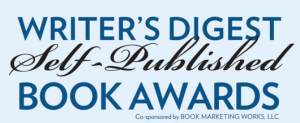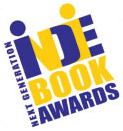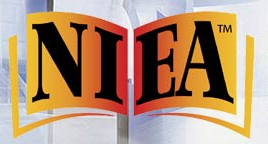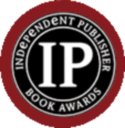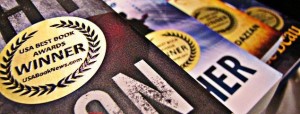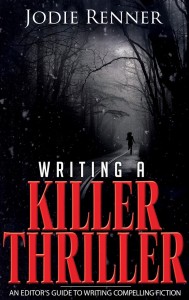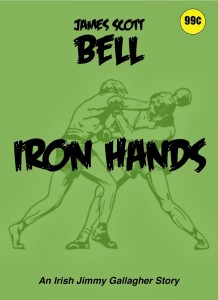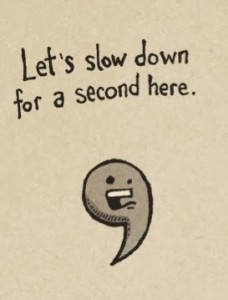by Jodie Renner, editor & author
If you’ve decided to go the indie route and publish your next book yourself, perhaps first as an e-book on Amazon (Pros, Cons, & Tips for Publishing Your Book on Amazon) and then maybe in print too, be sure to check out James Scott Bell’s advice yesterday. And I second his praise for Amazon’s KDP Program – I went into detail on the advantages in a post recently at Crime Fiction Collective: “Thanks, Amazon, for Promoting My Books for Free!”
The competition is tough for independently published books, and an amateurish book can sink your reputation before you’ve gotten started, so be sure to put out a professional product (and it is a product). How do you make your book stand out from the crowd, rise up the ranks, sell well, and garner great reviews?
First, be sure to search out professionals to edit and proofread the manuscript, design the cover design, and format it properly. For an excellent, extensive list of professional resources for book design, editing, formatting, and more, check out Elizabeth Craig’s EBook Services Professionals Directory. Also, peruse DuoLit’s detailed Self-Publishing Resources Directory, and our list here at TKZ (in the sidebar).
Limited resources for all of those necessities? You can save a lot of money on editing costs by doing a thorough revision and edit yourself first (See my step-by-step tips for revision, Revise for Success, James Scott Bell’s excellent guide, Revision & Self-Editing, and my Fire up Your Fiction). You can also cut costs for formatting by doing the basic formatting yourself, per these instructions for formatting your manuscript. And you can get a high-quality cover design for as low as $99 on sites like this one where I got my two covers, or even lower if you choose a pre-made cover.
Then, once your story is revised, polished, and presented in an attractive, professional-looking package, and you’ve published it, think about entering it in a book contest. Winning an award for your self-published fiction or nonfiction book is a great way to gain recognition and respect – and increase book sales, so it rises above the masses. If you win an award, the publicity will boost your book sales, and you can add the award decal to your cover and mention the achievement on your back cover, in the book description, and in all your marketing and promoting, for that extra edge.
Here’s a list of book awards specifically for independently published books. It’s for your quick info only, and is in no way an endorsement of any of them. Click on the title of the award to go to their website for more details. And do let me know of any good ones I’ve missed.
[And if you’re looking to hone your skills and network, you might also be interested in checking out this extensive list of Writers’ Conferences & Book Festivals in North America in 2014 & 2015.]
BOOK CONTESTS FOR INDIE AUTHORS
THE BIGGIES:
~ AMAZON BREAKTHROUGH NOVEL AWARD
The Seventh Amazon Breakthrough Novel Award Contest is right around the corner. You won’t want to miss this opportunity to win a publishing contract with Amazon Publishing.
How & when to enter: They must receive your contest entry between February 16, 2014 and March 2, 2014. The contest is limited to 10,000 Entries.
Prizes: One Grand Prize winner will receive a publishing contract with a $50,000 advance, and four First Prize winners will each receive a publishing contract with an advance of $15,000. Visit the Prizes page for the full list of prizes and details.
Categories: include five popular genres: General Fiction, Romance, Mystery/Thriller, Science Fiction/Fantasy/Horror and Young Adult Fiction. For complete eligibility details, view the Official Contest Rules, or read details on how to enter.
~ WRITER’S DIGEST SELF PUBLISHED BOOK AWARDS
Sponsored by: Writer’s Digest Magazine (F&W Media) and Book Marketing Works, LLC
Requirements: Open to all English-language self-published books. Entrants must send a printed and bound book. Evaluated on content, writing quality and overall quality of production and appearance. All books published or revised and reprinted between 2009 and 2014 are eligible.
Early-Bird Deadline: April 1, 2014
What’s in it for you?
- A chance to win $3,000 in cash
- National exposure for your work
- The attention of prospective editors and publishers
- A paid trip to the ever-popular Writer’s Digest Conference!
Fees: Early-bird entry fees: $99 for the first entry, and $75 for each additional entry.
Categories: 9, including 2 for nonfiction.
Winners notified: by Oct. 17, 2014
Notes: Very popular so very competitive. Your book needs to be professionally produced and sparkle in every way. I have judged for this contest for the past 3 years, so can provide more general info if anyone is interested.
Judges provide feedback/commentary on all books submitted? Yes – minimum 200 words, plus a 1-5 rating on 5 points.
Also, Writer’s Digest Self-Published eBook Awards
– New and for 2013, they only had two categories, fiction and nonfiction, so chances of winning were very slim. Maybe they’ll add more categories for 2014, which would improve this one. A definite plus is that, like the above WD contest, they do send you the judge’s rating and commentary, whether you win or not, which is very helpful.
[Update: 2 days after posting this, I received an Honorable Mention in this contest, plus a detailed, entirely positive review from one of the judges. Thrilled!]
~ FOREWORD REVIEWS BOOK OF THE YEAR AWARDS
Sponsored by: Foreword Reviews
Open to: all books from independent publishers, including small presses, university presses, and self-published authors, published in 2013.
Deadline: January 15, 2014
Winners announced: at American Library Assoc. conference, June 26 – July 1, 2014
Entry fee: $99. Send two books per category.
Categories: Over 60 categories
Judges provide feedback/commentary on all books submitted? No.
Benefits/Prizes: Valuable publicity and $1500 cash prize for the Editor’s Choice in Fiction and Nonfiction.
Details/Advantages: “The judging is unique in that after the initial entries have been narrowed down to a group of finalists in each category by the magazine’s team of editors, the finalists are shipped to a hand-selected group of booksellers and librarians who determine the winners. This panel of industry experts use the same criteria for judging as they would use in their own acquisitions process.”
~ INDIEREADER DISCOVERY AWARDS
Sponsored by: Kirkus Indie
Requirements: Open to all self-published books with a valid ISBN. No restrictions on publication dates. Both eBooks and paper books can be submitted.
Deadline: March 15, 2014
Categories: Two main categories (fiction and non-fiction) and 49 sub-categories.
Entry fee: $150 per title, $50 fee for each additional category entered. Submit two copies the first category entered and one each additional category. One paper book and one ebook is preferred, if possible.
Winners announced: at the 2014 Book Expo America (BEA) in New York City.
Benefits: “Everyone entering the IRDA’s receives a guaranteed book review from one of IR’s professional reviewers.” Publishing partners: the Huffington Post and USA Today. “If your book gets a 4-5 star review—whether you win the IRDAs or not—it will be considered “IndieReader Approved” and we’ll give you a sticker so that booksellers and book buyers can identify it as such.”
Judges provide feedback/commentary on all books submitted? Yes, every author who enters a book in the IRDAs gets a review–at least 300 words–by a professional IR reviewer.
~ NEXT GENERATION INDIE BOOK AWARDS
Sponsored by Independent Book Publishing Professionals Group
Requirements: Open to independent authors and publishers worldwide. Enter books released in 2013 or 2014 or with a 2013 or 2014 copyright date
Categories: 60 categories to choose from
Deadline: February 14, 2014
Fees: $75 per title for the first category entered, $50 for each additional category.
Submission Details: Two copies of the book must be sent for the first category entered plus one copy for each additional category.
Prizes, Benefits, awards: Cash prizes, awards, exposure of top 60 books to NYC literary agent, awards reception, NYC
Details: The largest not-for-profit awards program for independent publishers
Winners notified by: May 15
Judges provide feedback/commentary on all books submitted? No.
~ NATIONAL INDIE EXCELLENCE BOOK AWARDS
Requirements/Eligibility: Open to books with an ISBN, published 2010-2014. Send one copy of the book per category entered.
Deadline: March 31, 2014
Fees: $69 per category
Categories: Lots of Categories!
Winners & Finalists: Will be publicized during Book Expo America; be listed on the official website of the IndieExcellence.com site; etc.
Winners announced: May 15, 2014
~ IPPY AWARDS – INDEPENDENT PUBLISHER BOOK AWARDS
Sponsored by: Jenkins Group Publishing Services, affiliated with Publisher’s Weekly.
Eligibility: independently published titles released between July 1, 2012 and March 15, 2014. Open to authors and publishers worldwide who produce books written in English and intended for the North American market.
Deadline: March 15, 2014
Fees: $85-$95 per category; $55 to also enter the E-Book Awards or Regional Book Awards
Categories: 76 subject categories in National awards; Regional awards for the United States, Canada, and Australia and New Zealand; E-Book Awards with fiction, non-fiction, children’s and regional categories.
Benefits: Winners receive celebration party in NY City, medals, stickers, certificates, national publicity in major trade publications including Publisher’s Weekly and Shelf Awareness. Learn more
~ THE BEN FRANKLIN AWARDS
Sponsored by: IBPA – Independent Book Publishers Association
Info: The IBPA Benjamin Franklin Award for excellence in book publishing is regarded as one of the highest national honors for small and independent publishers.
Deadlines: 2013:First Call – Sept. 30, 2013; Second call – Dec. 31, 2013 (extended to Jan. 15, 2014)
Categories: 41 book categories + design = 55 categories
Entry fees: IBPA member – $95 per title, per category; Non-IBPA member – $225 for first title, which includes one year’s membership in IBPA; $95 for subsequent entries.
Benefits: Winners recognized at a gala event. Gold winners receive an engraved crystal trophy. Gold and Silver winners receive award certificates along with gold or silver stickers. All winners announced to the major trade journals and media.
Judges provide feedback/commentary on all books submitted? Yes. The Benjamin Franklin Awards are unique in that the entrants receive direct feedback on their titles. The actual judging forms are returned to all participating publishers.
OTHER BOOK CONTESTS FOR INDIE AUTHORS:
~ SHELF UNBOUND WRITING COMPETITION FOR BEST SELF-PUBLISHED BOOK
Sponsored by: Shelf Media Group, Half Price Books
Eligibility: Any independently published book in any genre is eligible for entry.
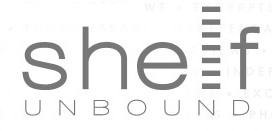
Deadline: Oct. 1, 2014.
Entry fee: $30 per book.
Submission: Email a PDF or Word Doc of the book or mail in a physical copy.
Details and benefits: Top five books receive editorial coverage in the December/January 2014 issue of Shelf Unbound. Best Independently Published book will also receive a year’s worth of full-page ads in Shelf Unbound and will be stocked and promoted in all 115 Half Price Books retail stores. Shelf Unbound book review magazine reaches more than 125,000 readers.
Judges provide feedback/commentary on all books submitted? No.
~ USA “BEST BOOKS” AWARDS
Sponsored by: USA Book News
Eligibility: Open to all books with an ISBN and published 2012–2014. Galley copies are welcome.
Deadline: September 30, 2014.
Entry Fee: $69.00 per title/per category.
Categories: Over 100 active categories to choose from.
Details: Winners and Finalists will be announced nationally in November 2014.
Prizes, Benefits: Winners & Finalists In Each Category Receive: USA Book News Exposure, National Media & Industry Exposure, Results Announced on USA Book News’ Social Media Pages, Publishing Industry Exposure. USA Book News also operates The 2014 International Book Awards, now in its fifth year.
Judges provide feedback/commentary on all books submitted? No.
~ THE ERIC HOFFER AWARD
Deadlines: Books: January 21. Short prose: March 31.
Fees: Books: $50
Categories: 16 categories
Prizes: Two grand prizes, one for short prose (i.e. fiction and creative nonfiction) and one for independent books. Prizes include a $250 award for short prose and a $2,000 award for best independent book. In addition, various other honors and distinctions are given for both prose and books.
Judges provide feedback/commentary on all books submitted? No. “Our judging process is a three tier system. Two successive category judges score the book on a seven point criteria system and provide feedback before it is passed to the higher level judges, but we do not provide feedback to the authors / publishers / nominators. We did in the early years, but it resulted in too many authors feeling the need to defend their books.”
~ READERS’ FAVORITE BOOK AWARDS
| Accept manuscripts, published and unpublished books, ebooks, audio books, comic books, poetry books and short stories in 100+ genres.
No publication date requirement or word count restriction. Entries are accepted worldwide as long as the work is in English.
Fee is $89.00
Four award levels plus a finalist level in each of our 100+ categories.
Special Illustration Award competition for illustrated books.
Roll of high quality, embossed award stickers ($50 value).
Digital award seal for your book cover and print/web marketing.
Personalized award certificate.
Olympics-style physical award medal with ribbon.
Awards ceremony with guest speakers and media coverage.
Book displayed in our booth at the largest book fair in America.
Book review posted on 7 popular book and social networking sites.
Mini-critique of 5 key areas of your book. |
OTHER BOOK AWARDS:
– Beverly Hills Book Awards
– Bookworks Awards
– eLit Book Awards
– EPIC eBook Competition
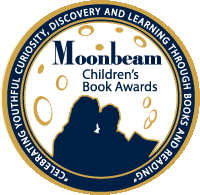 – Global eBook Awards
– Global eBook Awards
– Green Book Festival
– Nautilus Book Awards
– Publishing Innovation Awards
– Reader Views Literary Awards
BOOK FESTIVAL CONTESTS:
– New England Book Festival
– New York Book Festival
– San Francisco Book Festival
– The Beach Book Festival
– The Hollywood Book Festival
– London Book Festival
– Paris Book Festival
– The Living Now Book Awards
INTERNATIONAL
– International Book Awards
– The International Rubery Book Award
– The WISHING SHELF Independent Book Awards [UK]
CHILDREN’S BOOKS
– The Moonbeam Children’s Book Awards
Can you think of any more to add? Have you had any experiences with any of these book contests that you’d like to share?
